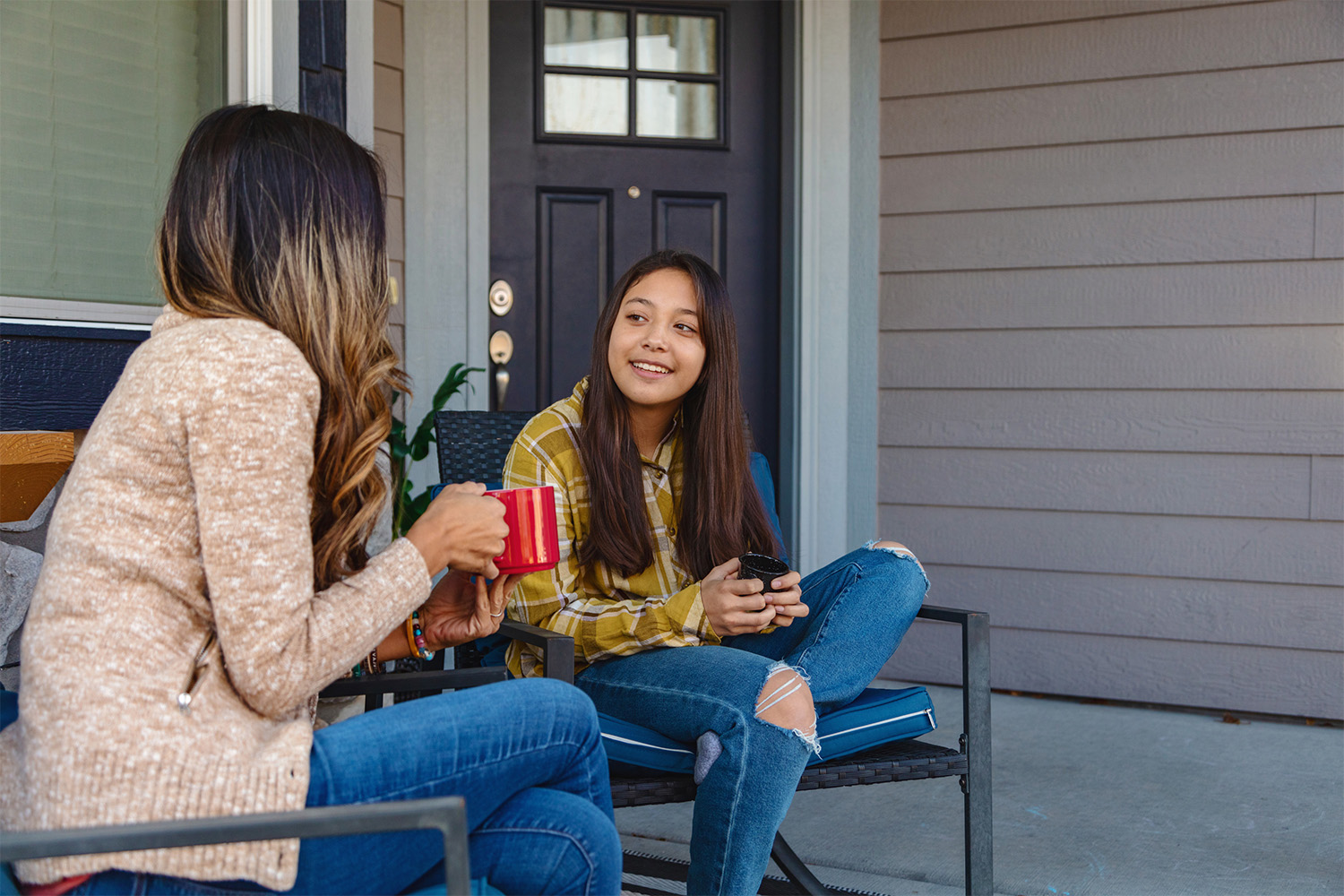Frequently Asked Questions
Court Appointed Special Advocates of Monterey County is a county-wide non-profit usually referred to as CASA of Monterey County. Our name honors the dedicated volunteers supporting children and youth in foster care and the juvenile justice system.
VOLUNTEER
CASA stands for Court Appointed Special Advocate, which is a community volunteer who is trained and sworn in as an officer of the court and advocates for children and youth in foster care and the juvenile justice system. The overarching goals of a CASA are to advocate for, support, and empower…the children and youth to whom they are assigned.
CASAs form a relationship with a child/youth and advocate for their best interests. They speak with everyone in their life, including parents and relatives, foster parents, teachers, medical professionals, attorneys, social workers, probation officers, and others. This information is used to write court reports and inform the judge of their progress, needs, and wishes.
A request for a CASA advocate can be made by social workers, probation officers, parents, foster parents, therapists, and foster youth- to the Dependency Court judge. The judge will then decide whether or not to issue the court order that appoints the CASA to the child/youth. Youth in Juvenile Justice are assigned a CASA by the Probation Court Judge.
CASA can serve children and youth from birth to 21 years old. Here is our current age breakdown:
0 – 5 years old: 7%
6 – 11 years old: 27%
12 – 17 years old: 47%
18+ years old: 19%
Our volunteers come from various ages and backgrounds. They range from college students to professionals, to retirees. They are committed members of the community who undergo thorough background checks, have completed training, and are dedicated to being a consistent, caring adult in the life of a child or youth in foster care or the juvenile justice system. A majority of our volunteers are females, and we are always looking for more men to join the team. We also continue to have a great need for bilingual Spanish-English speaking volunteers.
CASAs typically serve one child or youth at a time. In situations with siblings, CASAs may have more than one or will have a co-CASA who advocates beside them with the other sibling(s).
We ask our CASAs to meet with their child/youth twice a month. How you spend your time is determined by you. A CASA volunteer can expect to spend approximately 12 to 16 hours a month on his/her case. This time estimate includes actual time spent with the child/youth, travel time, note-taking time, phone calls and texts, time talking with advocate supervisors, etc. We ask for a commitment of at least 18 months or until the case is closed as we strive to create consistency in a child’s life.
In addition to the written application, our process is comprehensive to ensure the best fit for the volunteer, the organization, and the children and youth. This includes interviews, reference checks, background checks, a five-week training period, and ongoing evaluations during the year.
This volunteer opportunity is not a match for everyone interested. We want to ensure volunteers are ready for the long-term commitment and emotional responsibility that CASAs are expected to assume. Occasionally, we find becoming a CASA is an overwhelming role, and that is OKAY. For the safety and protection of both the volunteers and youth we serve, we have to turn down applicants who are not yet ready to become an advocate.
The 35-hour training covers topics relevant to the child welfare and juvenile justice systems, understanding the developmental needs of children and families, educational support, personal boundaries, cultural diversity, and how to serve in the capacity of a Court Appointed Special Advocate.
Yes! Our organization welcomes non-advocate volunteers who assist us in office projects, holiday programs, fundraising events, and special classes or activities for the children. Please contact the office at (831) 455-6800 if you’re interested in other volunteer opportunities.
CHILD WELFARE AND JUVENILE JUSTICE
Child Protective Services removes children from the home when the child’s safety and well-being are in danger. During separation, services are provided by Monterey County to help the family reunite.
Youth enter the juvenile justice system when they are accused of breaking the law. This usually happens after they are arrested or given a citation by the police, leading to a court appearance where the judge decides the appropriate consequences or interventions.
Each year more than 600,000 children are placed in foster care nationally, with about 60,000 in California. This strains the social services and court systems to the point where they cannot adequately protect the rights and provide for the needs of each child.
CASAs are compassionate, vetted, and trained adults who support permanency, education, medical and mental health needs, and healthy lifestyle activities. With the help of a CASA, a child is half as likely to languish in the foster care system and that much more likely to find a permanent home.
As of August 2024, we have a waitlist of over 50 children for whom we don’t have an advocate. We are dedicated to ensuring that every child in Monterey County’s child welfare system has a qualified volunteer who advocates for their best interests. To succeed in our mission, we need about double the number of CASA volunteers – especially bi-lingual Latino volunteers, as over 70% of our children are of Hispanic/Latino origin.
CASAs are needed in the juvenile justice system to ensure that the best interests of youth are represented. CASAs provide a consistent, caring adult presence for the youth, helping them navigate the complexities of the legal system and ensuring the youth’s needs and rights are met. CASAs advocate for appropriate services, support, and resources, helping to guide the youth toward rehabilitation and a more positive future, especially when the youth’s voice might otherwise be overlooked.
Anyone can! Typically, reports originate from a teacher, doctor, friend, neighbor, or relative. By law, teachers and doctors, as well as CASAs, are mandated reporters of suspected child abuse.
Re-entry rates are relatively low in Monterey County; an average of only 7% of the children that reunify re-enter the system in less than one year, compared to 11.9% statewide. Children with a CASA are half as likely to reenter the system.
We monitor the following outcomes amongst others:
- Appropriateness of placement of the child
- Placement changes
- Timeliness of reunification or achievement of permanency
- How long a child remains in the system
- Total number of children served
- Number of advocates trained
- Look at board packet metrics
We ensure court orders and children’s rights are upheld in relationship to:
- Sibling visitation
- Visits with parents
- Services being provided
- Educational support
- Extracurricular activities and opportunities
According to a study of the 47 students for whom we hold educational rights to, 85% of foster children improve their attendance at school, 77% improve their grades, and 84% of high
Permanency is both a process and a result. It involves the child as much as possible. At a minimum, it’s a permanent connection with at least one committed adult who provides a safe, stable, and secure relationship. Ideally, this occurs through parental reunification, legal adoption, or guardianship.
GENERAL
We depend on revenue from multiple sources, including grants from private and public foundations, modest government funding, and contracts with the county. Other major sources include individual donors, businesses and civic organizations, fundraising events, and community events where CASA is a beneficiary. In addition, CASA has a planned giving and bequest program.











